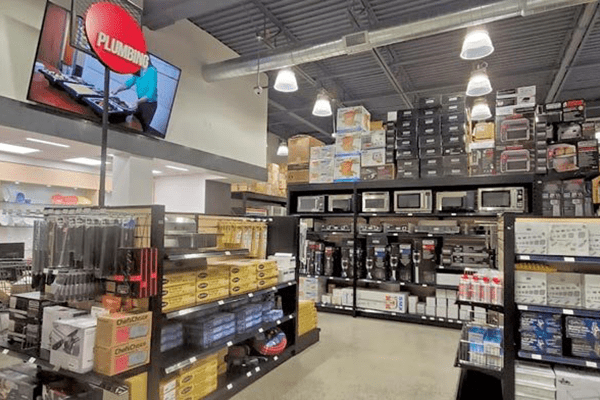|
RCBJ-Audible (Listen For Free)
|
Company Grows At A Time When Many Are In Limbo Or Disappearing
BUSINESS NEWS
Culinary Depot, the Spring Valley-based restaurant and equipment and supply dealer located at 67 Route 59, is opening a new showroom facility and state-of-the-art test kitchen at a time when many in the field are shrinking under the pressures of COVID-19.
“It has always been my vision with Culinary Depot to give customers the ability to try equipment,” said Sholem Potash, president and founder. “Our new test kitchen allows our customers to see how different types of ovens, fryers, and more work. We also have the ability to bring in new equipment as necessary, so they can buy what is right for them. As a former executive chef, I know this is vital to a business.”
“We don’t see this as a commodity business,” said Michael Lichter, CEO.
Potash says the company understands the power of e-commerce, “but it simply doesn’t deal with the priorities of a restaurant or hospitality customer. We look at the overall value of Culinary Depot as being driven by a formula of selecting the right piece of equipment, installing it to meet deadlines and then being there after the sale to coordinate service.”
Even before the pandemic, many equipment and supply dealers were shifting their operations to e-commerce. But Culinary Depot is the fish that swims upstream. From its early beginnings in Rockland County, Culinary Depot has grown to become the 23rd largest dealer in the country.
The company has locations in California, Nevada, Florida, South Carolina, New York, and New Jersey. Its customer base is wide-ranging, serving healthcare, correctional centers, educational institutions, supermarkets, casinos and restaurants and hospitality.
The company has completed projects for Bites Café in Spring Valley, Seasons Kosher Supermarket, Pine Valley Nursing and Rehabilitation in Spring Valley, U.S. Merchant Marina, the Trump Hotel in SoHo, Doubletree Hotel in Tarrytown, and more including the New City Jail.
“We don’t see this as a commodity business,” said Michael Lichter, CEO. “Our mantra is the right equipment is everything. We know that if our people can have superior product knowledge, it gives us a big advantage.”
At its heart, Culinary Depot understands that every chef, dietary director, and institution has different needs, according to its website. “Our overriding principle – as an upstart in 1999 and today – is to work with each customer every step of the way to help them meet their individual foodservice goals in the most practical, time efficient, and cost effective manner.”
Culinary Depot say leasing is the way to go for businesses that want to conserve cash flow.
“Oftentimes, people are lulled into thinking that paying cash is a good way to acquire equipment because doing so avoids finance charges, interest expenses, and results in lower total cash outlay,” the company maintains.
The company says liquidity is critical.
“This can become an outright survival issue when slow paying customers, slow sales, or unexpected expenses put pressure on cash reserves,” as COVID has revealed.
An available line of credit is an extremely valuable tool to address unforeseen emergencies, reducing those open lines by using them to finance equipment can be dangerous. Furthermore, bank terms, appetites, and flexibility on equipment transactions range from “less than optimum” to “downright difficult.
Leases do not include blanket liens, restrictive covenants, rate escalator clauses, “call anytime” provisions, compensating balance requirements, or any other items that are part of traditional lending agreements, according to the company. Leases include software, installation costs, training and some supply items.
And the company points out that Article 179: Section 179 of the IRS Tax Code allows a business to deduct the full purchase price for qualifying equipment purchased or financed during the tax year.
“As such, by leasing equipment and deducting the full purchase price you essentially get “free” usage of your equipment for over a year,” the company says.
For companies that do not qualify or opt for the Article 179 alternative, lease payments are written off as they are made. This eliminates the need for depreciation schedules and allows faster write off, resulting in increased cash flow.
Real Estate Investors Rejoice Over New Depreciation Opportunities













